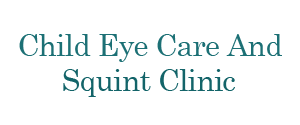Glasses Prescription (Refractive Error Correction)

- Why does a child need glasses?
- Why is regular vision screening so important ?
- How can a child be tested for glasses in early childhood ?
Good vision is key to a child's physical development,success in school and overall well-being. The vision system is not fully formed in babies and young children, and equal input form both eyes is necessary for the brains vision centers to develop normally.If a young child's eyes cannot send clear images to the brain,his or her vision may become limited in ways that cannot be corrected later in life.But if problems are detected early,it is usually possible to treat them effectively.
An ophthalmologist can detect the need for glasses through a complete eye exam. Typically, the eyes are dilated in order to relax the focusing muscles, so that an accurate measurement can be obtained. By using a special instrument, called a retinoscope, the ophthalmologist will then advise parents whether there is a need for glasses, or whether the condition can be monitored.
- How will i ever get my child to wear glasses ?
- What are things i can do to help my child adjust to glasses ?
That is a question most parents ask, especially when their child is an infant or toddler. The best answer is that most young children who really need glasses will wear their glasses without a problem (happily) because they do make a difference in their vision. Initially, some children may show some resistance to wearing their glasses, but it is necessary for parents to demonstrate a positive attitude.
1)The frame should look like it fits the child now — not one that he/she will grow into in a year.
2)Lenses made of a material called polycarbonate will provide the best protection for your child because this lens material is shatterproof.
3) Adding elastic bands or silicone temple tips are simple additions that can help keep glasses in the correct position on a child’s face.
Refractive Error



